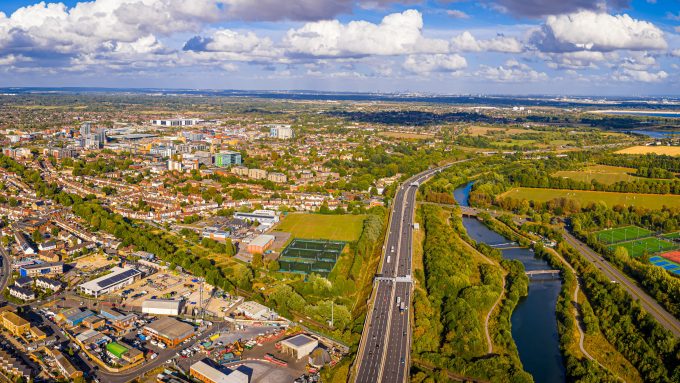
Portsmouth: powering ahead with promoting small businesses

Supporting small companies by providing lower rents for office space and the chance to share ideas with like-minded firms forms a major pillar of Portsmouth’s plan to help drive forward the local economy.
This summer the south coast city will open a fourth Business Enterprise Centre, with a fifth set to follow soon. The idea is to create communities of entrepreneurs and start-up firms to give them a helping hand and create new opportunities for the area.
“This is about giving people a first step up, and aligning business support closely with growing the economy. We offer favourable terms designed to support start-ups and small to medium sized businesses.Portsmouth City Council’s Head of Economic Development u0026amp; Skills, Jane Lamer
“The centres welcome people and businesses with varying perspectives,” she adds, “from film companies to surveyors to mechanics.”
A ‘First Friday’ networking club is run to allow companies to share ideas and ensure the council can communicate initiatives that might be of use, such as business support funding. “We have around 7,800 businesses in Portsmouth and over 90% of them are SMEs,” Jane adds. “There is a shared vision among political leaders here that we need to support SMEs moving forward.”
Ambitions to grow the economy in this manner are set against a context of local challenges including a scaling back of jobs and services at the dockyard. “We want to give residents a sense of aspiration,” says Jane.
Helping shape future thinking
The city has also created a flourishing business group with 40 partners called ‘Shaping Portsmouth’ of which Jane is a non-executive director. “We do a lot of really powerful work to bring together skills, education providers and businesses. During the pandemic we ran a project where we looked to place 100 young people into jobs in 100 days – and we managed to place 269.
“This shows the power of engaging businesses and making sure they understand apprenticeships, traineeships and to use those as tools for engagement. A lot of our businesses struggled to either recruit or retain staff during the pandemic, so we wanted to provide the right support for individual organisations.”
Taking part in the Innovation Places Leadership Academy has been very helpful, Jane says, “to look at what other cities have been doing, understand their different priorities and learn about how they have attracted inward investment.
“We had conversations around devolution, working with limited resources, and the importance of having amazing colleagues on board.”
From retail to city leadership
Jane Lamer joined Portsmouth City Council four years ago after spells in retail management, professional training and development, running a business and being a consultant.
“I understand the stresses and uncertainties that businesses face, so that helps with my current role; and I see the importance of skills, the benefits of training and the broader support that can help with business development.”
Jane has also spent time focusing on ways to engage with young people excluded from school. “Economic development has a moral imperative; around doing good and having a positive impact driven by social values. When I moved to the local authority, I worked on the skills side of economic development, including unemployment support programmes and got actively involved in our social value policies.
“I look at economic development holistically and consider both skills and the wider socio-economic piece.”
Efforts to improve housing and high streets
Jane and her colleagues are currently focused on improving Portsmouth’s local authority housing stock, and has carefully considered the asks of local residents in two tower block regeneration schemes. “People told us they want more green space, so we are looking at innovative ways to work with the few spaces we have.
“We are also seeing how we can work with housing developers across the city to create more green spaces within new developments. Communities came together during the pandemic, and we want them to continue having a sense of ownership and pride in their places.”
High street regeneration is another imperative, with a focus on introducing more residential property and community assets into central areas. Large buildings being repurposed include a former Debenhams store, and there is also a piece of work looking at how best to provide investment to revitalise the port.
But if there is one over-riding issue that cities need to get to grips with, it is clean air says Jane. “We have very ambitious targets, and have done some amazing stuff in the city, particularly with introducing solar panels and through the use of hydrogen in the port.”
She acknowledges that balancing the needs of certain businesses with the environment can be difficult, especially when it comes to initiatives to reduce pollution from vehicles such as the city’s Clean Air Zone or introducing more bicycle lanes.
“Partnerships we have pulled together through the Innovation Places Leadership Academy project are going to be key to that kind of resolution,” she adds. “Our net zero work is going to be a key driver for cities over the next 10 years.”
Connected Places Catapult is hosting an ‘Innovation Hub’ about Portsmouth on 20 July for entrepreneurs, start-up founders and small business leaders to discuss the support available for growing companies in the region. Find out more and register here.





